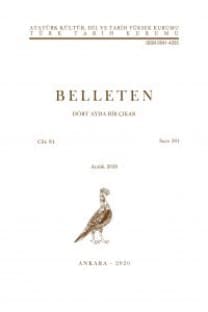Prof. Dr. Zafer TAŞLIKLIOĞLU, Trakya'da Epigrafya Araştırmaları (Biga yarımadasında bulunan kitabelerle birlikte) II, İstanbul 1971, İstanbul Üniversitesi Edebiyat Fakültesi yayınları No. 1654, XXIV-256 s. [Kitap Tanıtımı]
Prof. Z. Taşlıklıoğlu birinci cildini 1961 de yayınladığı "Trakya'da Epigrafya Araştırmaları" isimli çalışmalarının 1971 de ikinci cildini yayınlamış bulunmaktadır. Birinci cildin mütevazi ve bu ikinci cilde oranla programlı ve amacı belirli görünüşünün aksine ikinci ciltte yazar program tanımaz halde olup her türlü malzemeyi kitabına koyma gayretinde görünmektedir. Bu nedenle ikinci cilt birincisinin üç katı kadar geniş olmuştur. Kitap bugünkü idari örgütümüz esas tutularak I- Edirne ili (Enez, Lüleburgaz, Edirne buluntuları) s. 1-49; II- Istanbul ili (Büyük Çekmece, Istanbul, Küçük Çekmece buluntuları) s. 51-63; III-Kırklareli ili (Vize, Midye buluntuları) s. 67-69; IV-Tekirdağ ili (Germeyan köyü, Tekirdağ, ınecik, Marmara Ereğlisi buluntuları) s. 70-156; V-Çanakkale ili ve yöresi (Keçi Deresi, Büyük Anafartalar, Evreşe, Küçük Anafartalar, Kayan iskelesi) s. 157-17o; VI-Çanakkale ili Anadolu yakası (Nağra Burnu, Midilli Adası, Behramkale, Dardanos, Ezine, Lapseki, Karabiga, Çan, Gülpınar, Ilion buluntuları) s. 173-222 ile bir "Addenda" s. 223-232 dan meydana geliyor.
Anahtar Kelimeler:
Zafer Taşlıklıoğlu, Trakya, Epigrafya, Biga Yarımadası, Kitabeler
A further note on the French Newspapers of İstanbul during the revolutionary period (1795-97)
In his `Note sur les journaux français de Constantinople â, l'époque révolutionnaire, L. Lagarde threw important light on a hitherto obscure aspect of the propaganda effort of the Directory within the Ottoman Empire. The purpose of this additional note is to amplify and, in certain respects to correct, Lagarde's earlier contribution on the basis of the reports, now in the Public Record Office in London, of the British Minister to the Ottoman Porte, J. Spencer Smith. For inevitably, during the crucial years immediately before Bonaparte's Egyptian expedition of the summer of 1798 and the consequent Ottoman declaration of war on France, Spencer Smith kept a close watch on the activities of his French rival in İstanbul and the Levant. Succeeding Sir Robert Liston in 1795, Spencer Smith showed himself markedly fearful of what he termed 'the destructive doctrines so progressive in the present day' and the threat posed by French propaganda activities in the Levant.
Keywords:
French Newspapers of İstanbul, Revolutionary Period, 1795-1797, French Propaganda, Levant,
- ISSN: 0041-4255
- Yayın Aralığı: Yılda 3 Sayı
- Başlangıç: 1937
- Yayıncı: Türk Tarih Kurumu
Sayıdaki Diğer Makaleler
The Relation between Urartian Temple Gates and Monumental Rock Niches
İstanbul Arkeoloji Müzesinde Bizans-Türk Çeşmesi
Dediği Dede and Dervish Lodges
A further note on the French Newspapers of İstanbul during the revolutionary period (1795-97)
The Byzantine-Turkish Fountain in the Archaeological Museum of İstanbul
Türk Tarih Kurumu Genel Kurul Toplantısı (25 Nisan 1975)
Urartu Tapınak Kapıları ile Anıtsal Kaya Nişleri Arasındaki Bağlantı
